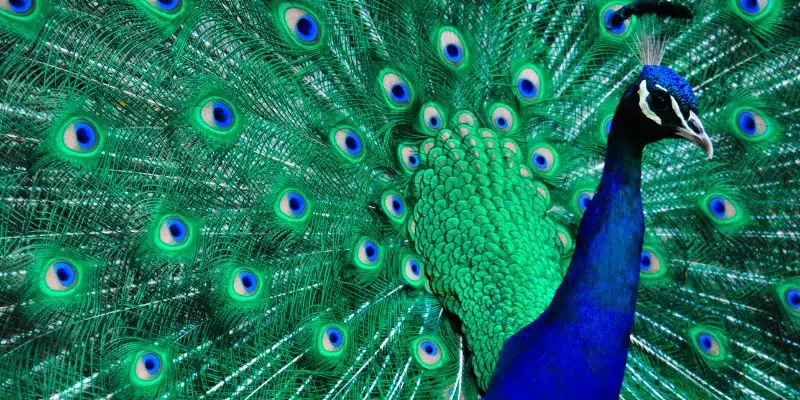The idea of peacock feathers meaning either having bad luck or good luck depends on what you want to believe in, who you ask, and where you are from.
This is because the superstation has a couple of different origins and you are more likely to believe in it if you come from the source. For example, in the western world, peacock feathers are associated with bad luck, while in the eastern world, it is believed that peacock feathers are a sign of good luck and prosperity.
The idea of peacock feathers and superstations is fascinating as it is associated with good and bad luck. Deciding who is right and wrong seems like something not agreeable as it’s based on personal beliefs and where one is from.
With two opposing beliefs, it’s hard to tell who is right and who is wrong. Read on to know why some people call peacock feathers bad luck, while it’s a story of good luck to others.
Are Peacock Feathers Bad Luck?
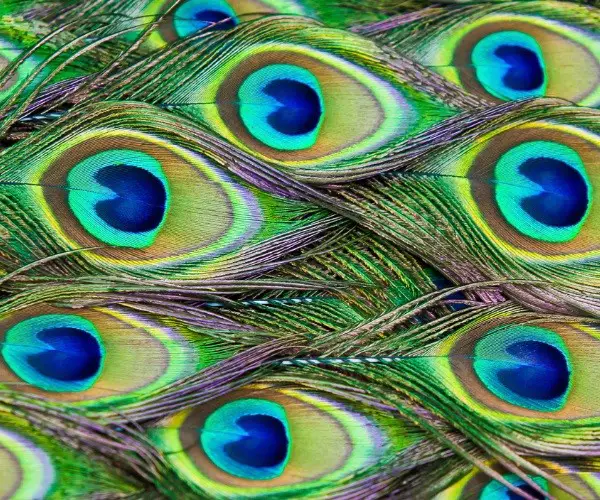
Many people will be swayed by what they were told growing up when it comes to superstitions and beliefs.
When you go back to history, many people of the western countries believe that peacock feathers are bad luck because, during the 13th century, the invading Mongols warriors wore peacock feathers while going into war.
The people who encountered the Mongol warriors saw the peacock feathers as a bad sign and a symbol of bad luck. The Mongol warriors caused so much devastation in Eastern Europe.
Since they wore peacock feathers to the battle, people started seeing them as a bad sign and eventually associated them with bad luck. There is not so much research or ground to support this theory because out of all the things the warriors wore, why did they only pick the peacock feathers?
Another theory that links peacock feathers as bad luck began in the Mediterranean. They say that the eye-like markings on the end of peacock feathers are the ‘evil eye’ of a female demon known as Lilith.
This she-devil is associated with the unexplained death of infants, misfortunes, and bad luck. Having peacock feathers in your house was a way of inviting the Lilith to your house to bring havoc, misfortunes, death, and bad luck.
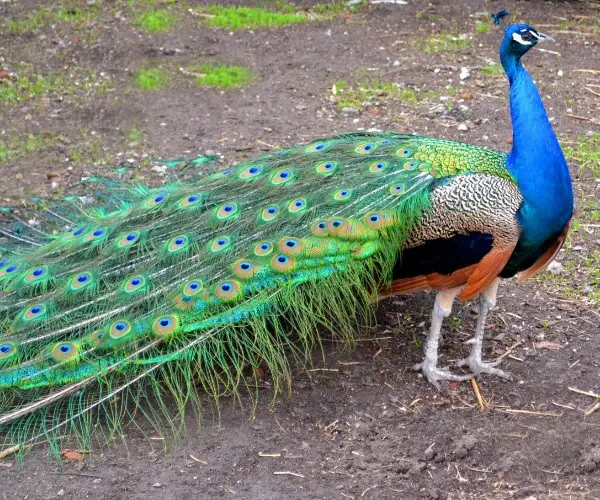
People believe that the eye-marking on the end of peacock feathers is a window where Lilith always looked at people’s homes.
However, this theory is not so compelling because of the little proof to associate the peacock feathers with bad luck. People only linked these misfortunes to afflicted people who happened to have hanged peacock feathers in their homes.
If an infant’s death occurred in a home where they had no peacock feathers around, would the theory still imply?
In the theater industry also, peacock feathers are regarded as bad luck. When the peacock feathers have been used in props, costumes, or in the set, there have been reported catastrophic events during a performance when the peacock feathers were present. That is why it’s unlikely to find any peacock feathers used in the theater industry.
Why does a bird with such beautiful feathers be associated with bad luck?
Are Peacock Feathers Good Luck?
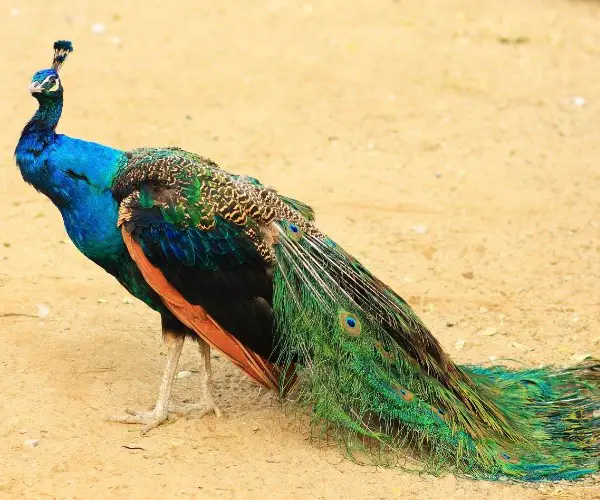
While peacock feathers are regarded as bad luck in the western world, it is a different case in the Eastern world in countries like Japan, India, and China.
Here, everything to do with peacocks, especially the feathers, is considered to be good luck. For example, in India, the Indian peafowl is their national bird, protected and worshiped.
In most Eastern countries, peacock and their feathers are considered a whole of positive things like good luck, wisdom, peace of mind, and serenity.
The colorful plume of peacock feathers is believed to have spiritual healing energy in India and China, bringing harmony and balance.
Peacocks are also a symbol of immortality. Their feathers are naturally renewed every year, which symbolizes renewal.
In Buddhism, peacocks are sacred. Their distinctive eye pattern represents openness and vision. The eye is often linked to articulate dreams and great insights into one’s future. As a result, instead of the set of eyes being seen as an evil eye, the set of eyes is believed to protect their homes from danger and evil energies.
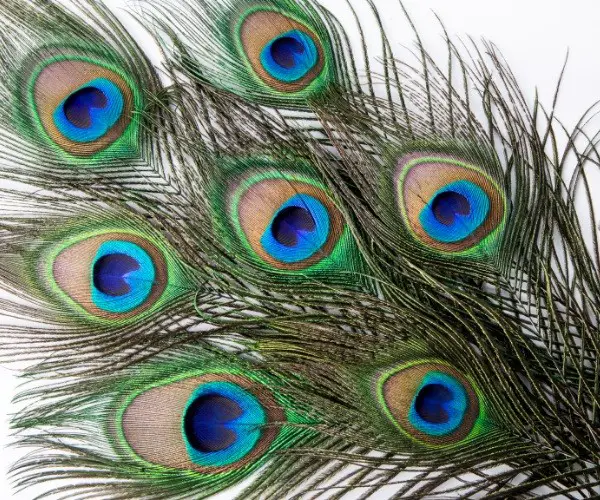
When you read about the Chinese Buddhism encyclopedia, it states that Hindus associate peacocks with Lakshmi, a compassionate God who represents patience, fortune, fortitude, kindness, empathy, and good luck.
This goddess is also connected with Hendra, the deity of rain and thunder who provides water to give life and earth a new look.
The peacock feathers also symbolize all these positive qualities. You are also likely to find Hindu gurus using peacock feathers in Darshan to their disciples.
You are likely to find many people having peacock feathers in their homes to bring them good luck. The magical and impressive eye pattern on peacock feathers makes an excellent demand for peacock feathers, as anyone who believes they are a symbol of good luck will like to be associated or own an item with peacock feathers.
Conclusion
While it’s easier for people in most Eastern countries to understand that peacock feathers are a symbol of good luck because of their feathers’ beautiful magnificence and lure, the Westerners ideally believe that having peacock feathers in their homes or around is bad luck.
While the original source of these superstitions has faded, peacock feathers’ prophetic meaning may be far-fetched, primarily when it’s associated with good luck by some and bad luck by others.
Your stand on whether or not peacock feathers are a symbol of bad luck or good luck depends on what you choose to believe. Also, where you come from can play a more significant role in what you want to believe. All the same, the peacock still is a beautiful bird!
Last Updated on May 20, 2022 by Pauline G. Carter

